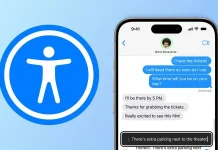
Potential borrowers with a history of bad credit — or no credit at all — may not qualify for private student loans, but they will for federal.
Most federal student loans don’t require a credit check, so they are the best route to take when looking to fund your education if you have poor credit.
In fact, no matter what your credit score is, when you’re looking to pay for college, you should start by taking advantage of all the government loans available to you before shopping around for a private one. Federal student loans typically come with lower interest rates than private loans (and they’re fixed rates), plus they offer more borrower protections, such as forbearance, deferment, income-driven repayment plans and forgiveness programs.
Ahead, we break down a few things to consider when you start looking for college financial aid, and how your credit score might play a role.
1. Start by looking for free aid
Before you start applying for student loans, first research ways you can get free money to help cover your education costs, such as scholarships, grants and work-study programs. The more you can take advantage of these programs, the fewer loans you’ll need to take out.
Credit score role: Applying for free funding like college scholarships usually doesn’t require your credit score information.
2. Next, apply for federal student loans
Next, you’ll want to apply for federal student loans by filling out an online FAFSA® (Free Application for Federal Student Aid) form, which you can find here. Both current and prospective students in undergraduate and graduate school can see their eligibility for financial aid by entering their personal information and completing the FAFSA form each school year they need aid.
Credit score role: While the FAFSA form does ask for financial details like your income and savings, it will not ask for your credit score or pull your credit report when you apply. Completing the FAFSA form doesn’t affect your credit score. For more information on what information you’ll need when applying for federal loans, download this free worksheet provided by the U.S. Department of Education.
The exception to this is federal loans that parents or guardians can take out to help their children pay for college, also known as Parent PLUS loans. These do require a credit check, and the website clearly states, “If you have placed a security freeze on your credit file, you must lift or remove the freeze at each credit bureau before you continue. Your application will not be processed if you have a security freeze.” Applying for Parent PLUS loans will result in a hard inquiry on your credit report, which could temporarily ding your credit score a few points.
3. Lastly, apply for private student loans
Federal student loans have different borrowing limits depending on a number of factors, such as the type of student loan, what year of schooling the loan applies to and whether the student is considered a dependent. Once you (and your parent/guardian) have reached the borrowing limits, you may need to consider private student loans to make up the difference.
Credit score role: There are a variety of banks, credit unions and online lenders that offer private student loans. Most of them will require you (or your co-signer) to have a good credit score (670 or higher) in order to qualify.
Those with less-than-stellar credit should check out Earnest for private student loans or for refinancing. Earnest accepts some applicants with fair credit. The minimum credit score is 650 and there is no minimum income requirement.
As you shop around for a private student loan, you may come across a few lenders that have no credit or co-signer requirements at all. Know that they will still consider your income and will likely charge higher interest rates than private lenders that do check your creditworthiness.
























